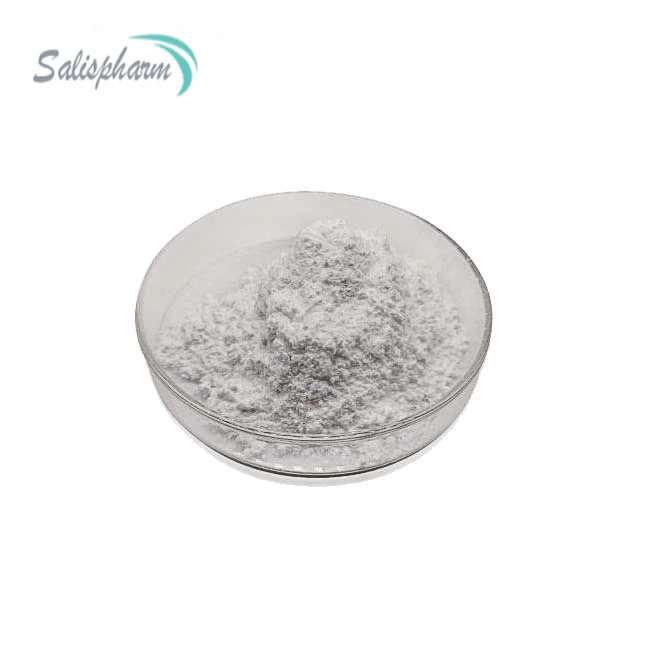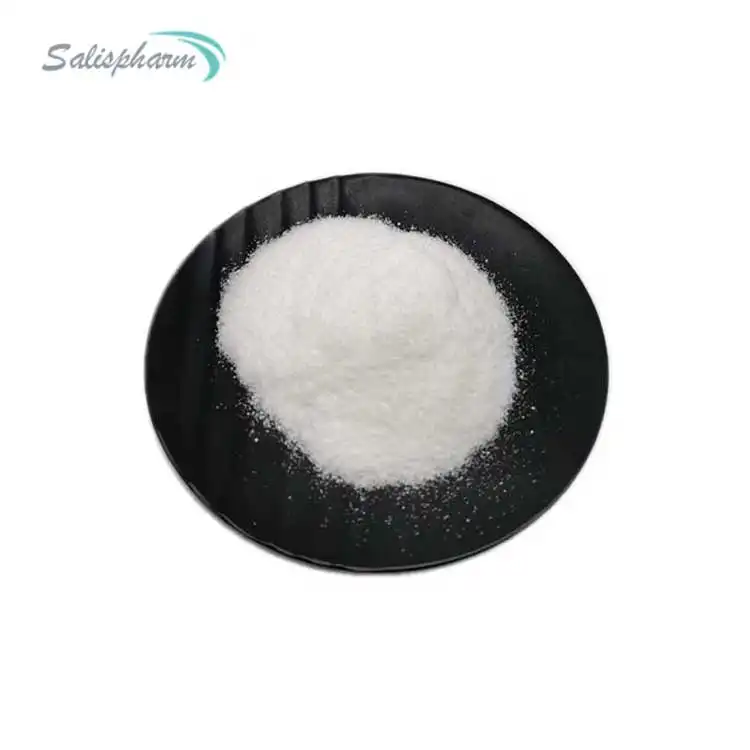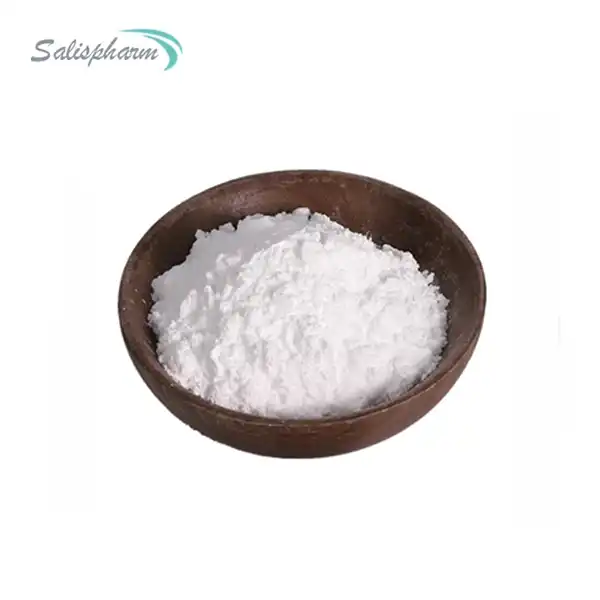Dementia is a challenging condition that affects millions of people worldwide, impacting their cognitive abilities and quality of life. As researchers and healthcare professionals continue to search for effective treatments, rivastigmine has emerged as a promising option for managing dementia symptoms. This blog post will explore the effectiveness of rivastigmine in treating dementia, its mechanisms of action, and its potential benefits for patients.
What are the benefits of rivastigmine for Alzheimer's disease?
Rivastigmine has shown significant benefits for patients with Alzheimer's disease, the most common form of dementia. This medication belongs to a class of drugs called cholinesterase inhibitors, which work by increasing the levels of acetylcholine in the brain. Acetylcholine is a neurotransmitter crucial for memory, learning, and cognitive function.
One of the primary benefits of rivastigmine for Alzheimer's disease is its ability to improve cognitive function. Clinical trials have demonstrated that patients taking rivastigmine experience improvements in memory, attention, and problem-solving skills. These cognitive enhancements can lead to a better quality of life for patients and their caregivers.
Furthermore, rivastigmine has been shown to help maintain daily living activities in Alzheimer's patients. This is particularly important as the disease progresses, as it can help individuals retain their independence for longer periods. Activities such as dressing, bathing, and eating can become increasingly challenging for those with Alzheimer's, but rivastigmine may help slow the decline in these functional abilities.
Another significant benefit of rivastigmine is its potential to delay the progression of Alzheimer's disease. While it is not a cure, studies have indicated that rivastigmine can slow down the rate of cognitive decline in some patients. This delay in disease progression can provide valuable time for patients and their families to plan for the future and make necessary arrangements.
Rivastigmine has also demonstrated positive effects on behavioral symptoms associated with Alzheimer's disease. These symptoms, such as agitation, anxiety, and depression, can be particularly distressing for both patients and caregivers. By helping to manage these behavioral issues, rivastigmine can contribute to a more stable and comfortable environment for those affected by the disease.
It's worth noting that the benefits of rivastigmine may vary from person to person. Some individuals may experience more significant improvements than others, and the medication's effectiveness can depend on factors such as the stage of the disease and individual patient characteristics. However, for many patients, rivastigmine offers a valuable tool in the management of Alzheimer's disease symptoms.
How does rivastigmine compare to other dementia medications?
When considering treatment options for dementia, it's essential to understand how rivastigmine compares to other available medications. This comparison can help healthcare providers and patients make informed decisions about the most appropriate treatment plan.
Rivastigmine belongs to the same class of medications as donepezil and galantamine, all of which are cholinesterase inhibitors. These drugs work similarly by increasing acetylcholine levels in the brain. However, there are some differences in their mechanisms of action and potential effects.
One key difference is that rivastigmine inhibits both acetylcholinesterase and butyrylcholinesterase, while donepezil and galantamine primarily target acetylcholinesterase. This dual inhibition may provide rivastigmine with a broader spectrum of action, potentially offering benefits in certain types of dementia, such as Parkinson's disease dementia, where butyrylcholinesterase plays a more significant role.
In terms of efficacy, studies have shown that rivastigmine is generally comparable to other cholinesterase inhibitors in treating Alzheimer's disease. A systematic review of clinical trials found that all three medications (rivastigmine, donepezil, and galantamine) demonstrated similar improvements in cognitive function and activities of daily living. However, individual patient responses may vary, and some patients may respond better to one medication than another.
One advantage of rivastigmine is its availability in different formulations. It can be administered as an oral capsule, liquid solution, or transdermal patch. The transdermal patch, in particular, offers a unique delivery method that may be beneficial for patients who have difficulty swallowing pills or experience gastrointestinal side effects from oral medications. This flexibility in administration can be a significant factor in treatment adherence and patient comfort.
When comparing rivastigmine to memantine, another medication used in dementia treatment, it's important to note that they have different mechanisms of action. Memantine is an NMDA receptor antagonist and is typically used in moderate to severe Alzheimer's disease, often in combination with a cholinesterase inhibitor like rivastigmine. Some studies have shown that the combination of rivastigmine and memantine may provide additional benefits compared to either medication alone, particularly in managing behavioral symptoms and improving cognitive function.
In terms of tolerability, rivastigmine's side effect profile is generally similar to that of other cholinesterase inhibitors. Common side effects may include nausea, vomiting, and loss of appetite. However, the transdermal patch formulation of rivastigmine has been associated with fewer gastrointestinal side effects compared to oral formulations, which may be an advantage for some patients.
It's also worth considering the cost-effectiveness of different dementia medications. While the cost can vary depending on factors such as location and insurance coverage, generic versions of rivastigmine are available, which may make it a more affordable option for some patients compared to newer, brand-name medications.
Ultimately, the choice between rivastigmine and other dementia medications should be made on an individual basis, taking into account factors such as the specific type and stage of dementia, potential side effects, ease of administration, and patient preferences. Regular follow-up and monitoring are essential to assess the medication's effectiveness and make any necessary adjustments to the treatment plan.
What is the recommended dosage of rivastigmine for dementia patients?
Determining the appropriate dosage of rivastigmine for dementia patients is crucial for maximizing its benefits while minimizing potential side effects. The recommended dosage can vary depending on factors such as the patient's age, weight, overall health, and the severity of their dementia symptoms. It's important to note that dosage recommendations should always be followed under the guidance of a healthcare professional.
For oral formulations of rivastigmine, the typical starting dose is 1.5 mg twice daily, taken with meals. This initial dose allows the patient's body to adjust to the medication and helps healthcare providers assess any potential side effects. If well-tolerated, the dose can be gradually increased at intervals of at least two weeks. The usual maintenance dose ranges from 3 to 6 mg twice daily, with a maximum recommended dose of 6 mg twice daily.
The transdermal patch formulation of rivastigmine offers a different dosing approach. Treatment typically begins with a 4.6 mg/24-hour patch, which delivers 4.6 mg of rivastigmine over 24 hours. After a minimum of four weeks and if well-tolerated, the dose can be increased to the 9.5 mg/24-hour patch. In some cases, a 13.3 mg/24-hour patch may be prescribed for patients who have demonstrated good tolerability to the 9.5 mg/24-hour patch after a minimum of six months of treatment.
One of the advantages of the transdermal patch is its once-daily application, which can simplify medication management for patients and caregivers. The patch should be applied to clean, dry, hairless skin on the upper or lower back, upper arm, or chest. It's important to rotate the application site daily to minimize skin irritation.
When initiating rivastigmine treatment, it's common for healthcare providers to start with a lower dose and gradually increase it. This approach, known as dose titration, helps minimize side effects and allows patients to build tolerance to the medication. The titration period typically lasts several weeks to months, during which the healthcare provider will closely monitor the patient's response and adjust the dose as needed.
It's worth noting that some patients may benefit from a higher dose of rivastigmine, while others may achieve optimal results with a lower dose. The goal is to find the highest well-tolerated dose that provides the most significant cognitive and functional benefits. Regular follow-up appointments are essential to assess the medication's effectiveness and make any necessary dosage adjustments.
For patients switching from oral rivastigmine to the transdermal patch, or vice versa, healthcare providers will typically provide specific instructions on how to transition between formulations. This transition should be done carefully to ensure continuous medication effects and minimize the risk of side effects.
In cases where a dose is missed, patients or caregivers should administer the dose as soon as they remember, unless it's almost time for the next scheduled dose. In such cases, they should skip the missed dose and continue with the regular dosing schedule. It's important never to double up on doses to make up for a missed one.
As with any medication, adherence to the prescribed dosage is crucial for achieving optimal results. Patients and caregivers should be educated on the importance of taking rivastigmine as directed and should communicate any concerns or side effects to their healthcare provider promptly.
In conclusion, rivastigmine has shown promising effectiveness in managing dementia symptoms, particularly in Alzheimer's disease and Parkinson's disease dementia. Its ability to improve cognitive function, maintain daily living activities, and potentially slow disease progression makes it a valuable treatment option for many patients. While it may not be suitable for everyone, and individual responses can vary, rivastigmine offers hope and potential benefits for those affected by dementia.
As research in the field of dementia treatment continues to evolve, it's essential for patients, caregivers, and healthcare providers to stay informed about the latest developments and treatment options. Rivastigmine, along with other medications and non-pharmacological interventions, can play a crucial role in comprehensive dementia care, helping to improve the quality of life for those affected by this challenging condition.
If you are also interested in this product and want to know more product details, or want to know about other related products, please feel free to contact iceyqiang@aliyun.com.
References:
1. Birks JS, Grimley Evans J. Rivastigmine for Alzheimer's disease. Cochrane Database Syst Rev. 2015;(4):CD001191.
2. Emre M, et al. Rivastigmine for dementia associated with Parkinson's disease. N Engl J Med. 2004;351(24):2509-2518.
3. Cummings J, et al. Meta-analysis of six-month memantine trials in Alzheimer's disease. Alzheimers Dement. 2006;2(1):6-11.
4. Winblad B, et al. IDEAL: a 6-month, double-blind, placebo-controlled study of the first skin patch for Alzheimer disease. Neurology. 2007;69(4 Suppl 1):S14-22.
5. Grossberg GT, et al. The safety, tolerability, and efficacy of once-daily memantine (28 mg): a multinational, randomized, double-blind, placebo-controlled trial in patients with moderate-to-severe Alzheimer's disease taking cholinesterase inhibitors. CNS Drugs. 2013;27(6):469-478.
6. Birks JS, et al. Cholinesterase inhibitors for Alzheimer's disease. Cochrane Database Syst Rev. 2018;4(4):CD005593.
7. Bullock R, et al. Rivastigmine and donepezil treatment in moderate to moderately-severe Alzheimer's disease over a 2-year period. Curr Med Res Opin. 2005;21(8):1317-1327.
8. Lycke C, et al. Rivastigmine transdermal patch in Alzheimer's disease: a systematic review and meta-analysis. Geriatr Gerontol Int. 2020;20(5):386-396.
9. Touchon J, et al. Long-term safety and tolerability of donepezil 23 mg in patients with moderate to severe Alzheimer's disease. Int J Clin Pract. 2014;68(5):609-618.
10. Farlow MR, et al. Effectiveness and tolerability of high-dose (23 mg/d) versus standard-dose (10 mg/d) donepezil in moderate to severe Alzheimer's disease: A 24-week, randomized, double-blind study. Clin Ther. 2010;32(7):1234-1251.









